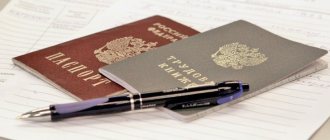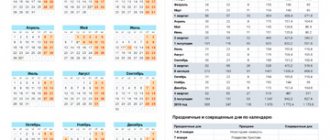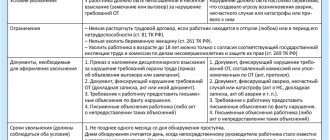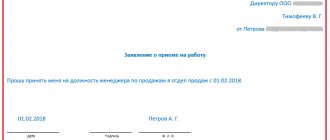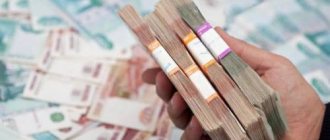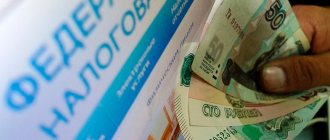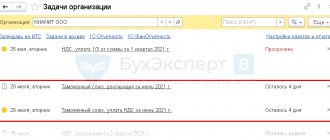As part of the fight against the pandemic, the Russian Government has updated the list of essential goods in 2022. In accordance with Decree of the President of the Russian Federation dated April 2, 2020 No. 239, the regime of non-working days in all regions of Russia was extended until April 30. But the norms of this Decree do not apply to a number of business entities, including those that provide citizens with essential goods. For such organizations, the usual work regime will remain and they will have the opportunity to work on non-working days.
What are essential goods
Non-food essential goods (the list approved for 2022 can be found below) are goods that the population cannot do without. The consumption of such goods does not change significantly when income changes; maximum permissible retail prices can be set for them. The supply chain of essential goods to the final consumer includes manufacturers, distributors, retail establishments, delivery services, etc.
Organizations that sell such products must carefully monitor the following points:
- what actions are the Government of the Russian Federation and local administration taking to regulate prices for these products;
- what risks does the distribution of such goods entail;
- in what cases the sale of products may attract close attention from tax authorities and the antimonopoly service.
List of goods: regulatory framework
With the onset of the pandemic, the Government approved the list of essential goods by Order No. 762-r dated March 27, 2020. State authorities of individual regions of the Russian Federation were given the right to make changes to this list taking into account the sanitary and epidemiological situation. This document also contains a list of business entities that belong to organizations that provide the population with socially significant goods. Some nuances of selling goods and providing catering services are also discussed here.
Order of the Government of the Russian Federation dated April 10, 2020 No. 961-r was approved for the purpose of stable fuel supply for cars and other vehicles. In accordance with this order, gas motor fuel was included in the previously approved list of socially significant goods.
The latest edition of the current list of non-food essential goods was approved by Government Order No. 1062-r dated April 18, 2020.
Russia has approved a list of essential goods during the pandemic
The Russian government has approved a list of essential goods. During the non-working week declared due to the coronavirus pandemic, their sale will not be limited. The corresponding order was signed by Prime Minister Mikhail Mishustin, the press service of the Cabinet of Ministers reports.
The list does not include food products, since they are not subject to restrictions anyway. The document notes that the list, if necessary, can be supplemented by regional authorities.
In total, the approved list included 23 items:
- baby products, including pacifiers of various types;
- soap, as well as detergents, cleaning and polishing products;
- sanitary products and toiletries;
- individual protection means;
- medical products and disinfectants;
- pet supplies, including feed and veterinary drugs;
- gasoline, diesel fuel, gas;
- auto parts, including lubricants and tires;
- electrical equipment;
- cable production;
- Appliances;
- computer, electronic and optical equipment;
- gardening items and equipment;
- construction and finishing materials and tools;
- sanitary products;
- products for fire prevention and fire extinguishing;
- print media;
- matches;
- candles;
- funeral supplies;
- glasses, lenses and parts thereof;
- tobacco products;
- goods accompanying the distribution of goods: packaging, labels, price tags and cash register tape.
The document notes that organizations providing the population with essential goods include, among others, manufacturers, distributors, transport and logistics companies and other participants in the supply chain.
The order also stipulates that if a store sells at least one product from the list, it can sell other products not included in it. In addition, the document allows distance trading. In turn, catering services can only be provided for takeout or delivery.
Among other things, Mishustin signed an order on the complete closure of Russian borders. The head of the Cabinet of Ministers instructed to temporarily limit movement through road, rail, pedestrian, river and mixed checkpoints on the state border. The measures were taken to limit the spread of coronavirus throughout the country. They will come into force on March 30.
On March 25, during a televised address to Russians, Russian President Vladimir Putin declared the week from March 28 to April 5 non-working as a measure to comply with quarantine during the coronavirus pandemic.
According to experts, “coronavirus holidays” will cost the Russian economy at least 900 billion rubles, or 0.8% of GDP. At the same time, in reality the drop may be much greater, since shopping centers, restaurants and cinemas, which usually smoothed out the effect of long holidays, will close in Russia.
As of March 28, the number of cases in Russia exceeded 1,200 people. Five of them died. In total, about 630,000 cases of coronavirus infection have been reported worldwide. Almost 29,000 patients died.
“Secret of the Company” has a channel on Telegram. Subscribe!
How the list of essential goods has changed
The initial list of essential goods, approved by the Government of the Russian Federation by Order No. 762-r, included 23 items, incl. sanitary masks, wet and dry wipes, hand sanitizers, matches, pet supplies, gasoline, toilet paper, products for children (diapers, shampoos, pacifiers, feeding bottles, diapers, baby diaper rash creams), etc. goods.
Decree of the Government of the Russian Federation No. 961-r made minor adjustments to this list: instead of the item “Liquefied natural gas”, the item “Nasotropic fuel” was introduced.
Order of the Government of the Russian Federation No. 1062-r also changed the approved list of essential goods, setting it out in a new edition. Some items in the list have been changed - for example, instead of the item “Hand sanitizer” the broader concept of “Antiseptics” is now indicated and “Disinfectants” have been added.
The Ultimate List of Essentials
The updated list of non-food essential goods also consists of 23 items. It included:
- Sanitary and hygienic mask.
- Hand sanitizer.
- Wet wipes.
- The wipes are dry.
- Toilet soap.
- Laundry soap.
- Toothpaste.
- Toothbrush.
- Toilet paper.
- Sanitary napkin.
- Washing powder.
- Children's diapers.
- Matches, box.
- Candles.
- Diaper for a newborn.
- Shampoo for children.
- Diaper rash cream for children.
- Feeding bottle.
- Pacifier.
- Automotive gasoline.
- Diesel fuel.
- Liquefied natural gas.
- Pet products (including animal feed and veterinary drugs).
Officials excluded most areas from the list and even specified children's products, detergents and hygiene items. Tobacco products (but they are usually sold in grocery stores) and funeral supplies (obviously, officials have their own ideas on this matter) were not included in the new list. But still, there are much fewer loopholes for working during the non-working week. Although no one prohibited working remotely with delivery, especially contactless ones. And the current Russian legislation does not yet provide for fines for businesses for violating the non-working regime.
Current list of products
In accordance with the latest decree of the Government of the Russian Federation, the list of essential goods includes the following items (as amended by Order 1062-r dated April 18, 2020):
| No. | Essential goods | By what regulatory act are they included in the List? |
| 1 | Individual protection means | Order of the Government of the Russian Federation of April 18, 2022 No. 1062-r |
| 2 | Disinfectants | |
| 3 | Antiseptics | |
| 4 | Wet wipes | Order of the Government of the Russian Federation of March 27, 2022 No. 762-r |
| 5 | Dry wipes | |
| 6 | Toilet soap | |
| 7 | Laundry soap | |
| 8 | Toothpaste | |
| 9 | Toothbrush | |
| 10 | Toilet paper | |
| 11 | Sanitary napkin | |
| 12 | Washing powder | |
| 13 | Baby diapers | |
| 14 | Matches | |
| 15 | Candles | |
| 16 | Newborn diaper | |
| 17 | Shampoo for children | |
| 18 | Diaper rash cream for children | |
| 19 | Feeding bottle | |
| 20 | Pacifier | |
| 21 | Gasoline for automobiles | |
| 22 | Diesel fuel | |
| 23 | Gas motor fuel (compressed natural gas, liquefied natural gas, liquefied petroleum gas) | Order of the Government of the Russian Federation of April 10, 2022 No. 961-r |
| 24 | Pet products (including animal feed and veterinary drugs) | Order of the Government of the Russian Federation of March 27, 2022 No. 762-r |
The goods included in the list can be sold in retail establishments, and remote sales are also allowed. By selling goods belonging to at least one of the groups given in the list, the seller can sell other goods not included in this list. It should be taken into account that adjustments may still be made to the current list in the future.
Subjects of the Russian Federation are given the right to supplement the federal list based on the current sanitary and epidemiological situation. In particular, the mayor of Moscow approved the list of essential goods, which is given in Appendix No. 1 to Decree No. 12-UM dated 03/05/2020. It basically coincides with the list of goods valid at the federal level. In the Decree of the Governor of the Moscow Region dated March 26, 2020 No. 144-PG, you can also find a list of such products.
Children's products are on the list of essentials.
The document specifies products for children, which mostly concern newborns and babies up to one year old.
The list includes such non-food products as:
- diapers;
- diapers;
- shampoo;
- pacifier;
- feeding bottle;
- diaper rash cream.
Thus, stores selling these goods will continue to operate even during the period of high alert. At the same time, the assortment of the outlet is not limited.
It is not prohibited to offer goods for children that are not included in the list if the store primarily sells essential products.
Features of setting prices for essential goods
It should be noted that sellers cannot inflate prices for the list of essential goods approved by the Government of the Russian Federation, as well as for socially significant food products. If the antimonopoly committee discovers that some companies are eliminating competition in the market using illegal methods, the violators will be brought to administrative responsibility. To challenge the FAS ruling, organizations will have to prove that there were objective reasons for the price increase and there was no collusion between them.
Prices for socially significant essential goods are formed on the basis of proposals from the Ministry of Economic Development after collecting and analyzing statistical information.
If within 30 days in a specific constituent entity of the Russian Federation prices for such products increase by more than 30%, the agency has the right to set maximum permissible prices for a period of up to 90 days (RF Government Decree No. 530 of July 15, 2010, as amended on March 21, 2016) . You can find more complete information on the topic in ConsultantPlus. Free trial access to the system for 2 days.
